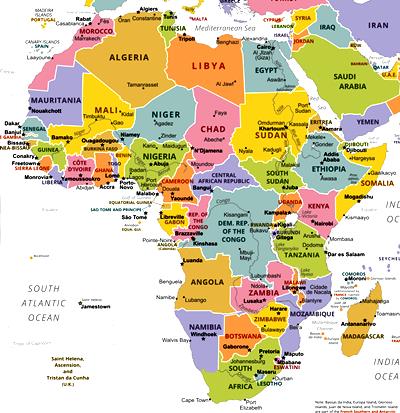Africa, the world’s second-largest and second-most populous continent, is a land of astounding diversity, breathtaking landscapes, and a rich mosaic of cultures. Often misunderstood and misrepresented, this magnificent continent is a place of unparalleled beauty and immense potential.
Africa boasts a stunning variety of landscapes that range from vast deserts to lush rainforests, towering mountains to expansive savannas. Some of the most notable geographic features include:
– The Sahara Desert: The largest hot desert in the world, the Sahara covers much of North Africa. Its golden dunes, oasis towns, and endless horizons make it a captivating and challenging environment.
– The Nile River: Flowing through multiple countries, the Nile is one of the world’s longest rivers. It’s a lifeline for millions of people and has played a central role in the region’s history.
– The Serengeti Plains: Located in Tanzania, this iconic savanna is known for its annual wildebeest migration, where millions of animals traverse the plains in search of food and water.
– The Congo Basin: The world’s second-largest tropical rainforest, the Congo Basin is home to an incredible array of wildlife, including gorillas, chimpanzees, and countless bird species.
– Table Mountain: Situated in South Africa, Table Mountain is a stunning flat-topped mountain that offers panoramic views of Cape Town and the surrounding coastline.
Africa is a wildlife enthusiast’s dream. It’s home to the famous “Big Five” – lions, elephants, leopards, rhinoceroses, and buffalo. The continent’s national parks and game reserves offer unforgettable safari experiences. Visitors can witness animals in their natural habitat, including:
– Maasai Mara National Reserve: Located in Kenya, this reserve is known for its spectacular wildlife, including lions, cheetahs, and the Great Migration.
– Kruger National Park: South Africa’s largest game reserve is a haven for spotting the Big Five, as well as an array of other animals and birds.
– Okavango Delta: Found in Botswana, this unique inland delta offers opportunities for water-based safaris to observe hippos, crocodiles, and various bird species.
Africa’s history is a complex and multifaceted one. From the ancient civilisations of Egypt, Nubia, and Axum to the diverse cultures that have evolved over millennia, the continent’s historical significance is undeniable. Key aspects of Africa’s heritage include:
– Ancient Egypt: The pyramids of Giza, the Sphinx, and the temples along the Nile River stand as testaments to one of the world’s oldest and most advanced civilisations.
– The Kingdom of Mali: West Africa’s Mali Empire was a flourishing centre of trade and learning during the Middle Ages.
– Timbuktu: This city in Mali was once a hub of knowledge and scholarship, attracting scholars and traders from all over the Islamic world.
– African Art and Music: The continent is renowned for its diverse artistic traditions, from intricate masks and sculptures to vibrant music and dance.
While Africa is a land of immense beauty and cultural wealth, it also faces numerous contemporary challenges. Issues such as poverty, disease, political instability, and environmental concerns pose complex hurdles for many African nations.
Africa is a continent that defies easy categorisation. It is a place of wonder and complexity, where nature and culture come together to create a unique and vibrant colour. By exploring its diverse geography, extraordinary wildlife, rich history, and contemporary challenges, we can gain a deeper appreciation for the many facets of this remarkable continent.
Africa’s story is far from complete, and its future promises to be just as captivating as its past.

